Apple 15-inch M2 MacBook Air review
The thin and light notebook is a creature of sacrifice. It’s a reminder that freedom of movement means leaving things behind. It’s packing a single knapsack for a week-long trip, leaving your home unencumbered, but entirely aware that some of the things you might want – or even occasionally need – won’t be coming with you.
As technology advances, such sacrifices grow less common. Battery for one thing. Power for another. Thin and light laptops grow more capable as the years go by, and our expectation of what such machines can and should do grows along with them.
The first M2 MacBook Air was just such a device. When the line finally got a new design to match its chipset, it felt like a new class of portable MacBooks. At the time, I declared the Air the right MacBook for nearly everyone. While multiple systems have come along since, I firmly believe that to still be true.
There are still sacrifices, of course. Some are currently necessary for a thinner and lighter profile. Others, it seems, may well be a byproduct of Apple finding ways to differentiate the Pro models from the Air. Ports are a prime example. The Air has four in all: MagSafe, two Thunderbolt 4/USB-C and a headphone jack. The Pro adds an additional USB-C port, HDMI and SD Card slot.
When it comes to laptops, more is often more: size, computing, inputs. These are things that separate them from our mobile devices. I wouldn’t, for example, want to write a book – or even this article – on my phone. A larger laptop screen is better for watching movies. More compute and graphical power are better for playing more complex games and executing many business workflows. These are reasons the form factor has persisted well after the rise of the smartphone.
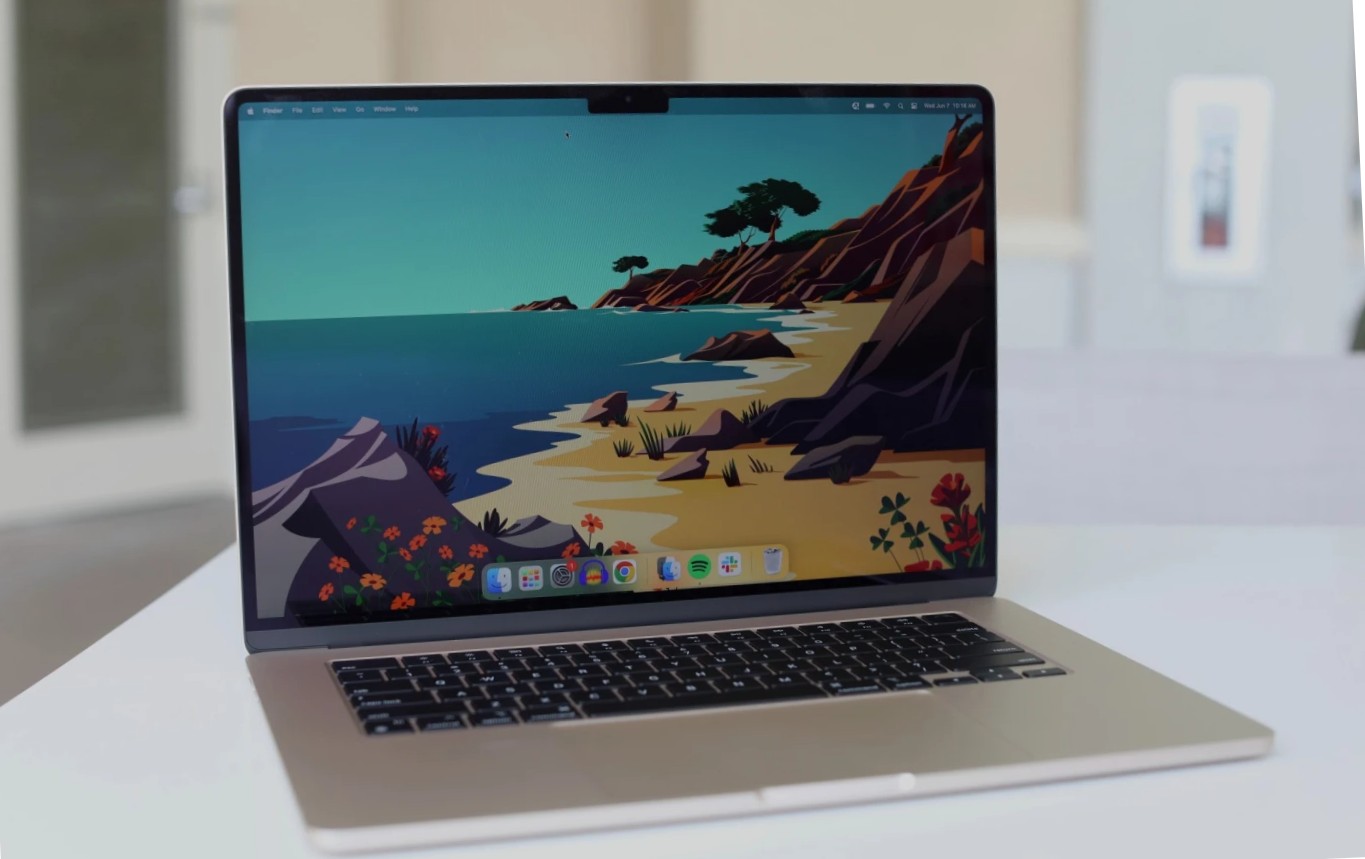
Image Credits: Brian Heater
Announced last week at WWDC, the 15-inch MacBook Air occupies a strange space. As the biggest Air to date, the product looks to buck at least one major constraint of the line. It feels a bit odd, but the model I’m currently typing this on is larger than the 14-inch M2 Max MacBook Pro I traveled to WWDC with last week.
The Air’s footprint is longer and wider than the 14-inch Pro (13.4×9.35 inches vs. 12.31×8.71). It does, however, remain a good deal thinner at 0.45 to 0.61 inches – the reduction of “pro” features like a fan go a long way there. It’s also just a indecipherable hair thicker than the 13-inch Air’s 0.44. At 3.3 pounds, it comes in just under the 14-inch Pro’s 3.5 pounds, while adding a fair bit to the 13-inch Air’s 2.7.
When I first held the 15-inch Air last week, a thought occurred to me: Where is the line for ultraportables? There is no standard answer there. These sorts of labels are generally left up to manufacturers to determine and are considered relative to other models. “Thin and light” certainly apply here relative to the smaller-screened 14-inch Pro. Having carried both in my backpack recently, I can’t say the Air felt significantly light, but it’s not entirely fair to directly compare the two, given the different screen sizes.
There isn’t a direct analog in this generation. What I can tell you here is that if true portability is your chief concern above all else, the 13-inch Air is unquestionably the way to go. My trip to WWDC last week was the first time in several years that I’d been saddled with an economy middle seat. And obviously the guy in front of me decided to recline his seat for the duration of the six-hour flight, because he was clearly entirely devoid of human compassion.
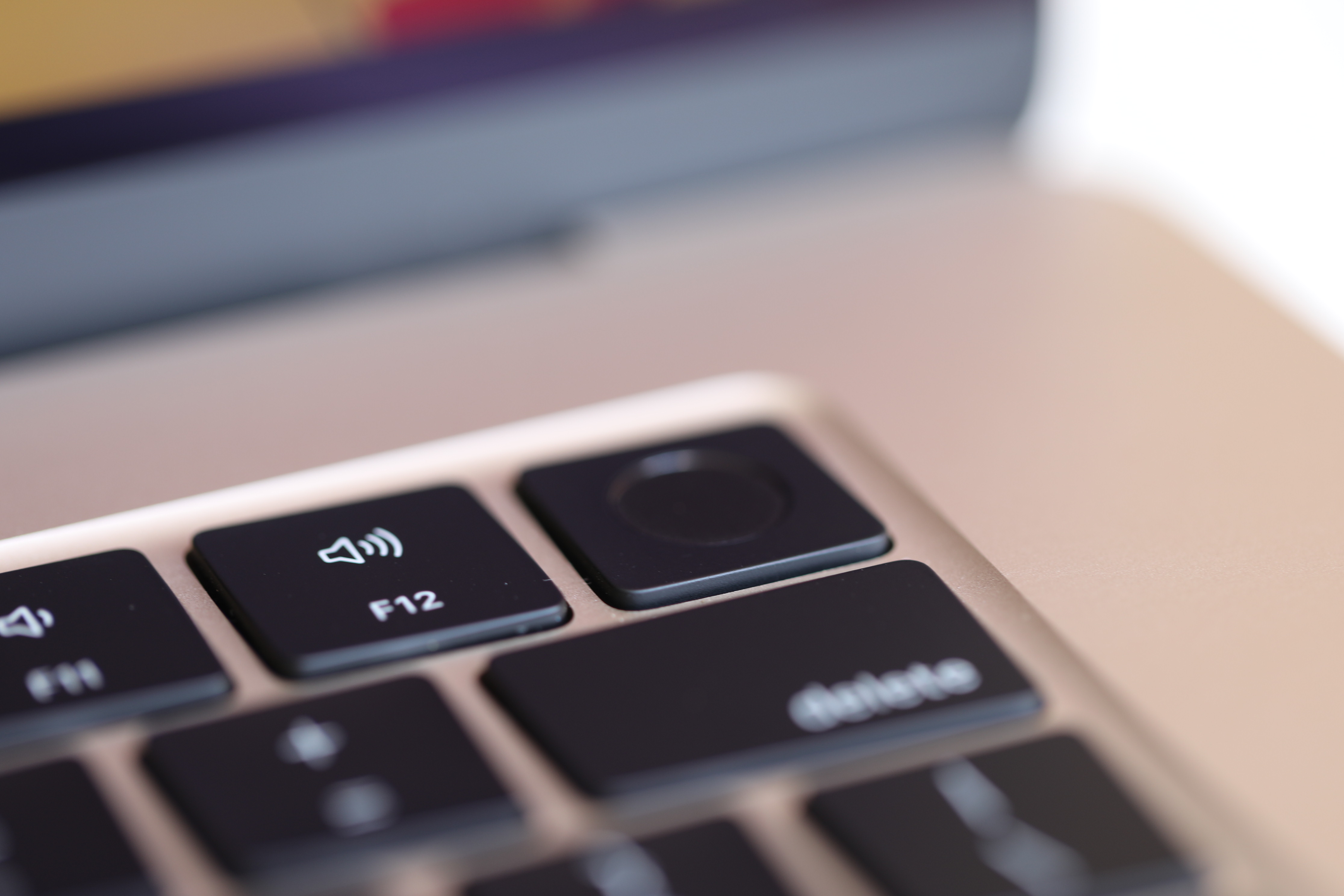
Image Credits: Brian Heater
Here, there’s no question that smaller is objectively better there. In fact, if your laptop spends more time in your backpack that out, go small. Is there a downside? For sure. Larger screens are easier on the eyes and present more visual information at once. If you make a lot of spreadsheets, have a ton of windows open or simply rely on your travel laptop for movies and gaming, those extra couple of inches make a big difference.
If you anticipate your system spending more time at home than in your carry on, by all means, go big. If you travel a lot and use that travel laptop as your primary entertainment venue, flip a coin, I guess. In previous years, I would have drawn that line between the Air and the Pro, rather than screen sizes. But the M1 broke the game wide open, dramatically raising the floor on performance. The Air was something of a niche device in its earliest days. In 2023, I would say that profile better fits Apple’s Pro systems. There’s little question now that the MacBook Air is Apple’s mainstream laptop these days.
Spec-wise, the new 15-inch model is remarkably similar to its 13-inch predecessor. It’s got the same 8-core CPU M2 chip, with up to a 10-core GPU (the 14-inch Pro, meanwhile, as an M2 Max or Pro with up to a 12-core CPU and 38-core GPU). Rumor has it that a planned M3 chip was delayed due to supply chain constraints. That could ultimately mean that one or both existing Airs will get an upgrade before 2024. Both start with 8Gb of RAM (upgradable to 25GB) and 256GB of storage (upgradable to 2TB).
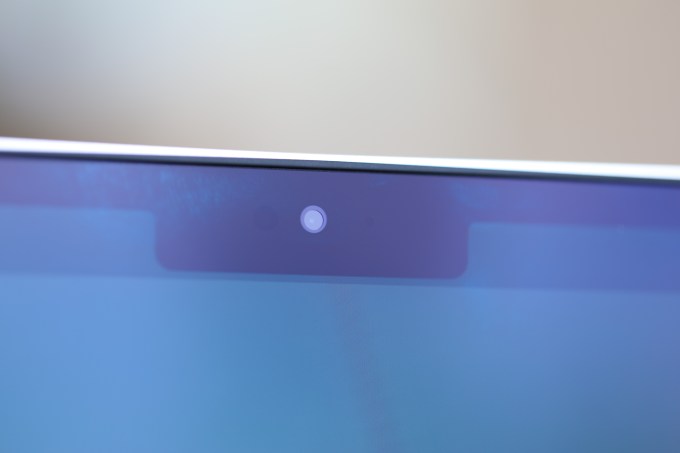
Image Credits: Brian Heater
The display is, of course, the thing. The smaller unit’s screen is technically 13.6 inches, to the larger’s 15.3. Both use Apple’s Liquid Retina technology, clocking in at 2560×1664 and 2880×1864, respectively. They both offer the same 1080p webcam across the line (an improvement from the long-standing 720p, for sure, but hardly the crispest built-in camera on the market), while the 15-inch’s increased footprint allows for a larger speaker array.
It adds two speakers – bringing the total to six – coupled with force-canceling woofers. It’s the same technology found on the Pro, which uses a top- and bottom-firing system to cancel out bass vibrations. While the Air has more surface area, however, it retains the 13-inch’s rear-firing speakers, rather than the grilles found on either side of the Pro’s keyboard.

Image Credits: Brian Heater
There’s a LOT of surface area, mind. One thing that gets tiresome with a smaller laptop is lack of sufficient palm wrest area. That’s not an issue here. The trackpad is also significantly larger than the 14-inch Pro. The keyboard action is uniform across the line. Gone are the days of the MacBook’s truly terrible keys. There’s more travel here, and you’re a lot less likely to get detritus jammed beneath them, rending them effectively useless. As someone who recently switched to a mechanical keyboard on his desktop, the travel still leaves a bit to be desired, but I’ve already written a lot of words on this thing and feel like I can keep typing all day.
The battery is rated at 18 hours – same as the 13-inch. In TechCrunch’s testing, we got around 19 hours of video playback. While the screen is larger and therefore draws more power, that’s counteracted by an enlarged footprint, creating more space for battery.
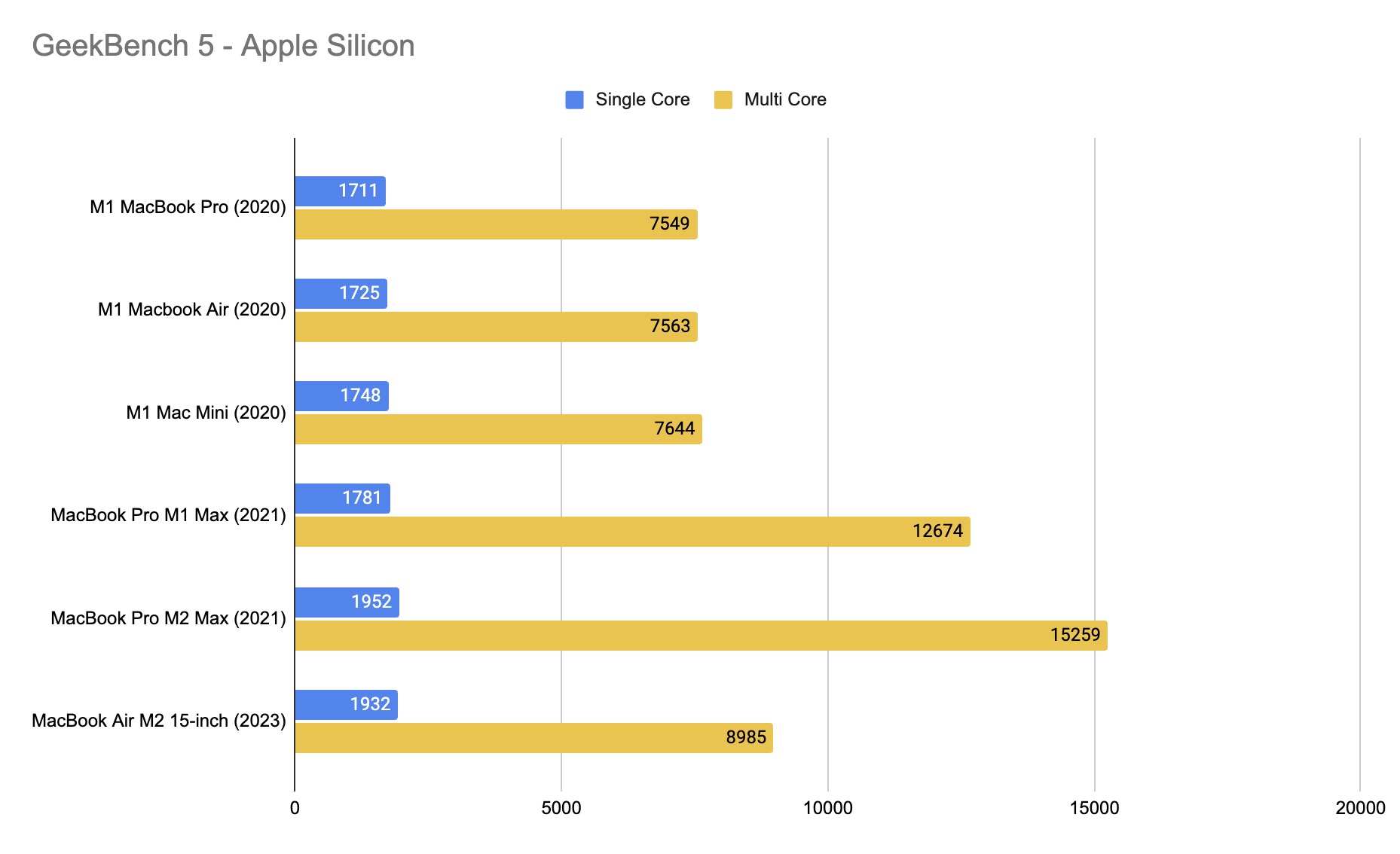
Image Credits: TechCrunch
Predictably, benchmark scores are right in-line with what we saw from the 13-inch model. Take Geekbench 5. The smaller model scored an average 1922 for single-core and 8974 for multi. The 15-inch, meanwhile got 1932 and 8985. There’s always a little fluctuation from machine to machine and test to test, but that’s right in the expected window. A higher single core and lower multi-core versus the M1 Max is also expected. It’s a great machine for most day to day activities, though it’s worth pointing out that the M2 is technically last year’s chip. It’s an open question whether Apple will return to an annual refresh cadence (with new Max/Pro models dropping precisely in the middle). Apple silicon is only a few years old, mind, and it seems perfectly reasonably to suspect continued supply chain concerns threw off the company’s rhythm.
As with the 13-inch, Apple opted not to include a fan here. The assumption is that most casual users won’t be pushing the machine to a point where this is an issue too often. That’s probably right. If say, you’re doing 3D rending or editing 8K video, just buy a Pro. That said, there are still ways to push it that one might encounter day to day. Steam, for instance, really lives up to its name on the MacBook. It’s a little too easy to heat things up.
I would say that if gaming is important in general, take a good long look at the Pro. Though honestly, the Windows ecosystem has such a massive head start on that front, that the Mac remains a tough sell for gamers. Apple is obviously working on that, with improved APIs for porting over existing titles. I’m pretty excited to make No Man’s Sky my post-Tears of the Kingdom obsession, for instance, but there remains a long way to go.
With No Man’s Sky having recently landed on macOS by way of Steam, I took the title for a stroll. Steam does have a tendency to heat these machines up quickly (no exception here), but I was pleasantly surprised that the game played as smoothly as it did, particularly at a lower frame rate. For a more casual approach to laptop gaming that doesn’t involving hours-long stretches, the Air is reasonably capable.
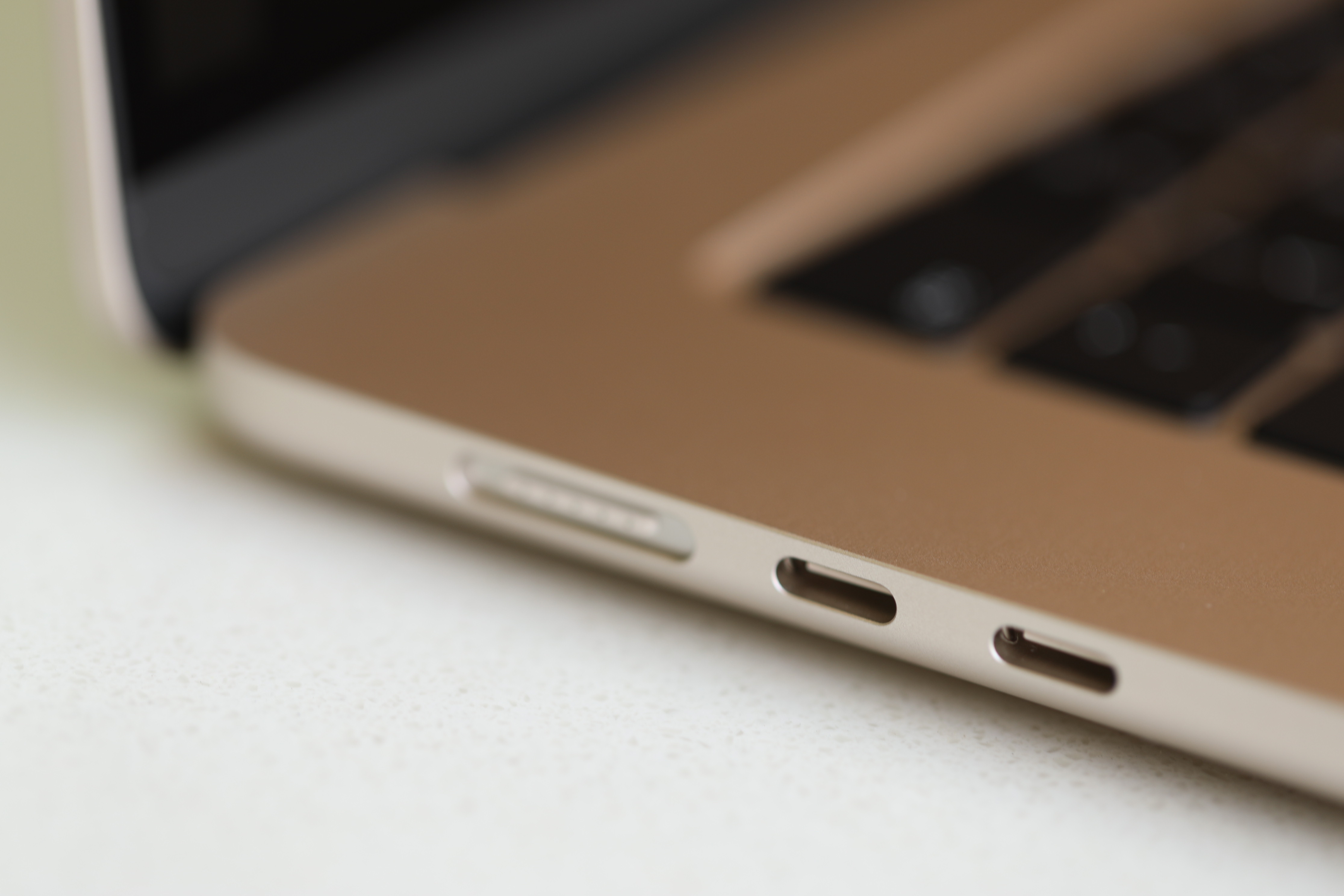
Image Credits: Brian Heater
Sticking to two USB-C ports on such a large system, meanwhile, feels counterproductive. Apple believes two is more than enough for most people – especially with the MagSafe onboard – perhaps that true, but I don’t know anyone who would say “no thank you” to another one. Another one on the opposite side of the machine would be even better. Apple placing them right next to each other is odd, given how certain cables and attachments have the habit of blocking one port.
The design is beautiful as ever. Again, effectively a scaled up version of the 13-inch, and that’s a good thing. There are four colors (to the Pro’s two). Apple sent a Starlight for review, but that would have been my last choice, honestly. I really dig the Midnight, along with the more classic Space Gray and Silver. But the Starlight’s yellow tint is subtle enough that the machine looks silver in most lights. It’s hardly ostentatious.
Its starting price of $1,299 is quite reasonable for a Mac. That’s $200 more expensive than the 13-inch M2 (and $300 more than the more classic design M1 model that’s still kicking) and a full $700 less than the 14-inch Pro. Things go up fast, of course – fully specked out, it’s gonna run you $2,499.
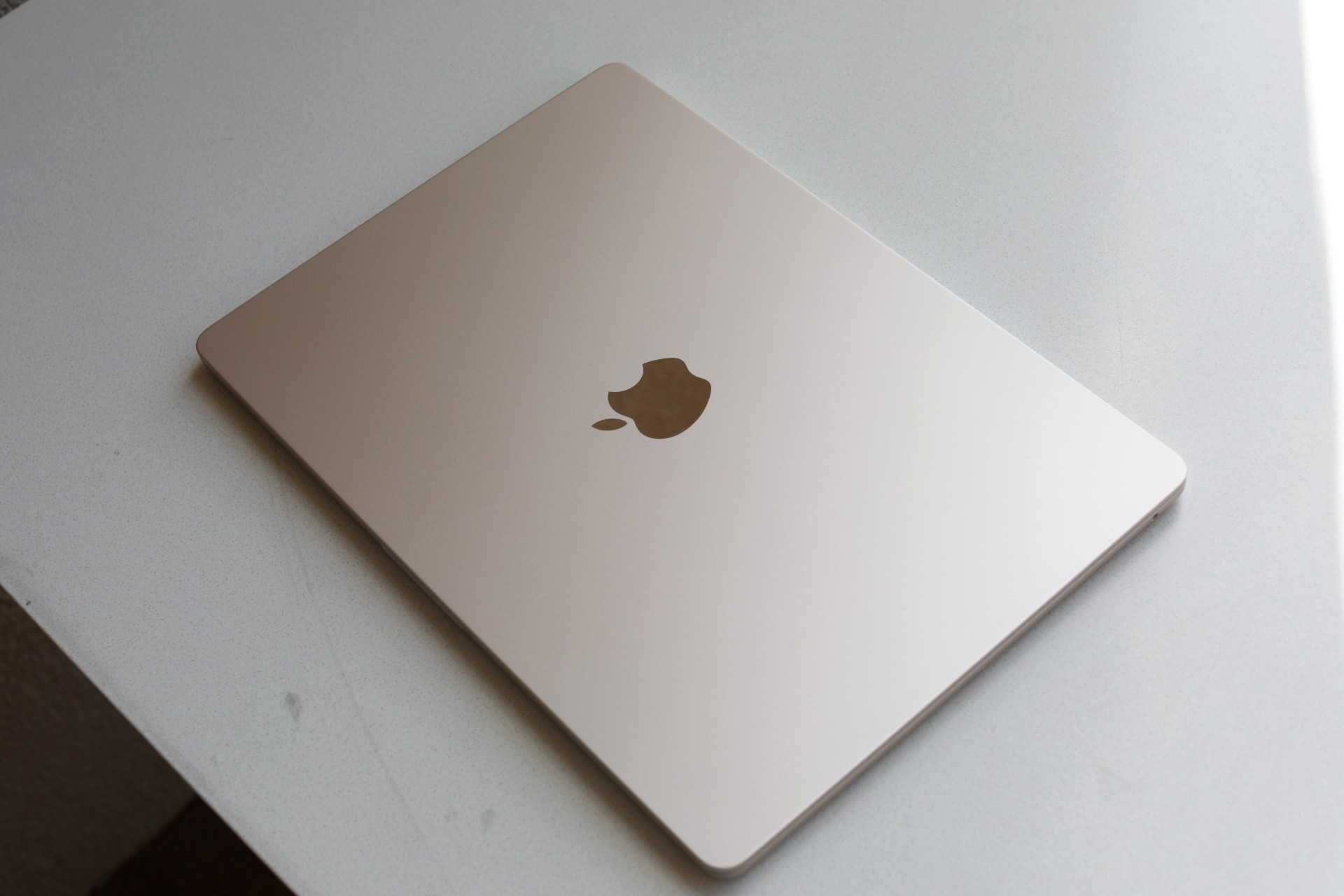
Image Credits: Brian Heater
My advice when buying a MacBook in 2023 is fairly simple. If this is your work machine, and you do a lot of resource-intensive tasks, get a Pro. Ditto for those who are more serious about gaming. For a vast majority of users, the Air is a great device, and the 13-inch is plenty sufficient for most tasks – especially if you travel a lot. If you’re shopping for a system that will mostly live on a desk at home or in the office, the 15-inch is a great choice.
Given Apple’s previous annual chip refresh, it’s hard to shake the feeling that the 15-inch just missed out on the M3. It seems entirely likely that a 13-inch refresh could arrive later this year, sporting the chip, which would be a bummer to brand new owners of the 15-inch MacBook Air. Some spec improvements over last year’s model would have been nice. But betting on Apple refreshes can be a fool’s errand (after I typed that, naturally, a rumor dropped than an M3 Air is coming sooner than later). As ever, the question is whether it’s worth waiting for that inevitability. Worst case scenario, you’re stuck with a great entry level laptop and a hint of processor envy.


